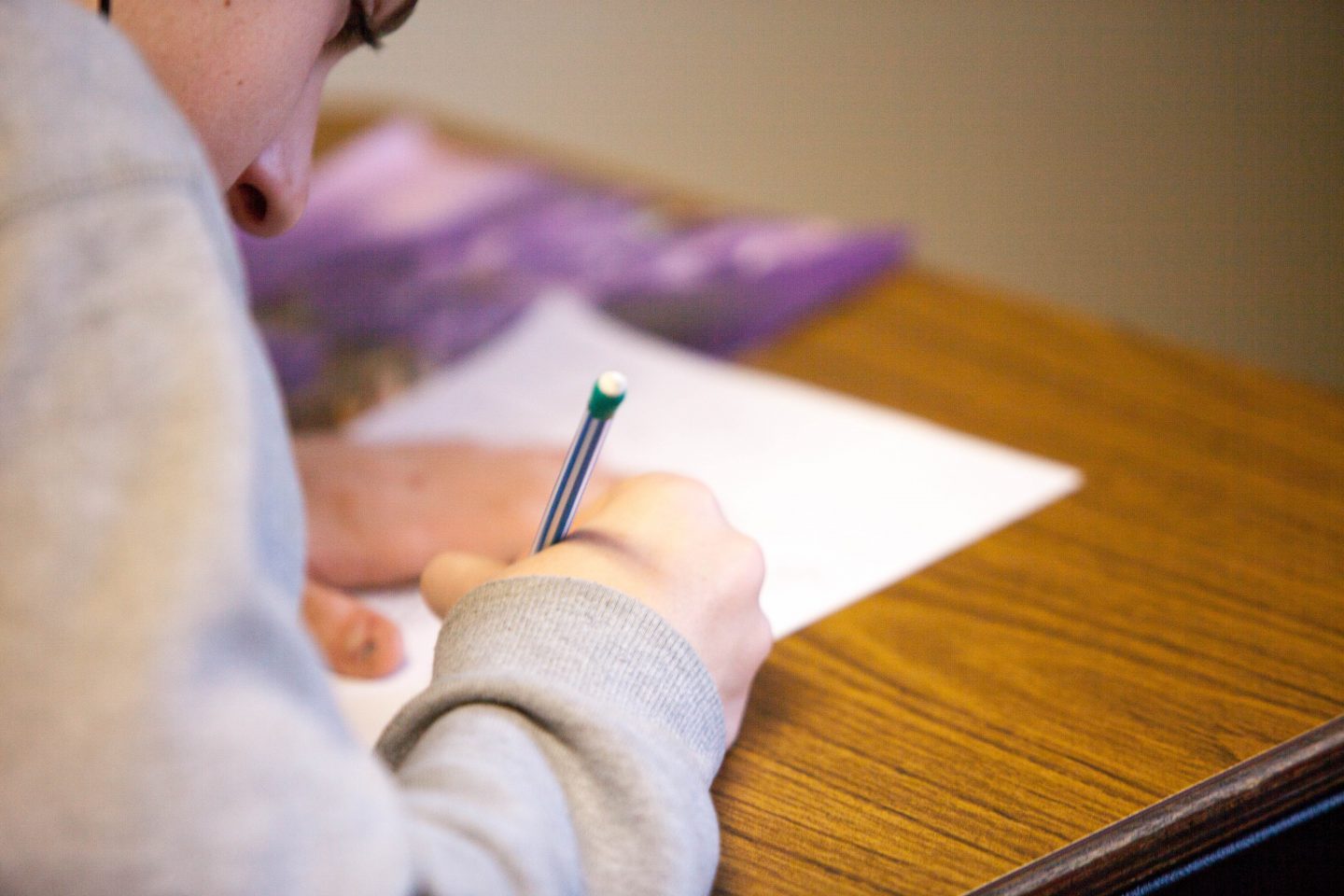[Editor’s Note: This school year, many students are learning online and at home–which is uniquely challenging. In this #schoolathome series, we are asking: What difference does Jesus make in our new normal? How can we live out this season well? To not just survive, but thrive? We hope you discover some helpful and practical tips along the way.]
You’re sitting in an exam room with five minutes left. You’ve got all your answers down, but there’s one that’s bugging you. You’re almost positive you have the right answer, but you’re not 100% sure. Looking up for a moment, you see the edge of the student’s paper in front of you. It’s on the same page as that question. The prof is leaning over a desk across the room. A glance would be easy. Just to get that confirmation. What should you do?
Universities have been conducting exams for a long time. This has created an environment with clear rules about cheating on exams and measures to ensure it doesn’t happen. We sit at desks far apart from each other. We can only have certain things on our desks. Professors and proctors are looking for anyone who isn’t following the rules. The consequences are dire. We won’t be able to finish the exam and can get a nice zero––probably failing the course.
What constitutes cheating during in-person exams seems black and white. You can’t look at other people’s answers. You can’t have someone else take the exam for you. You can’t take in your textbooks or unwarranted cheat sheets.
This clarity provides a clear standard to make moral decisions. When we cheat during an in-person exam, we know that it was against the rules. Clear guidelines on academic integrity shine a bright light on our moral decisions that can sometimes seem hazy. Clarity doesn’t always prevent cheating, but it can create healthy guilt that may lead to prevention, confession, and repentance.
Seeking clarity reminds me of Jesus’ talk with Nicodemus (John 3), where he points out that people who hide from the light do so to avoid their works being seen. They know their works are evil and don’t want to be exposed. But sometimes, there are grey areas that are more foggy than dark. I think we don’t want light in those areas because remaining ignorant feels safer. Jesus invites us out of the darkness and out of the fog, allowing his light to shine and expose the good and evil in our actions and hearts.
A lack of clarity fails to provide a clear standard to make moral decisions. Online exams can sometimes create those grey areas where what qualifies as cheating isn’t always obvious. Clarifying with a professor can shine a bright light on these moral decisions that seem so hazy. Maybe they have a clear rule that can light a path towards moral integrity. Even if that path is harder, it might be worth it.
What constitutes cheating during an online exam can be a grey area. If you take an exam online, are you allowed to open your textbook? What if that textbook is a pdf and benefits from the “find” feature? Are you allowed to use your favourite search engine to look up answers? Can you use the search engine like a dictionary to define terms? Can you take the exam with a group of friends like a study session?
Universities have not been conducting online exams for very long. This creates an environment without clear rules or standard measures to ensure cheating doesn’t happen. Sometimes online proctors can be employed to supervise each student. Or exams can be taken with an open book because students will have the textbook beside them anyway. Some professors are changing the way they ask questions, so they don’t come directly from the textbook or require short answers and more marking. But for professors who fail to adjust, their students face a foggy mess of unclear expectations and a lack of consequences.
You’re sitting on your computer reviewing notes for your online exam tomorrow morning. You happen to read that the exam software will block access to any other sites on your browsers. However, you rented your textbook online, and it’s only available online. You could use your phone, but the fact that the professor is blocking other websites seems to indicate that they don’t want you online at all. If you don’t use your phone, you’ll be at a disadvantage. If you do, you might be breaking the rules. What should you do?
"*" indicates required fields





